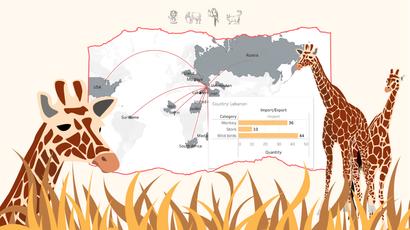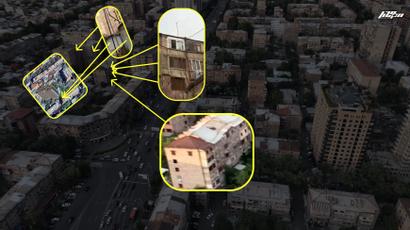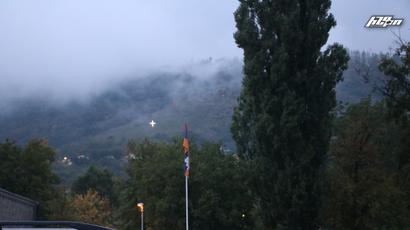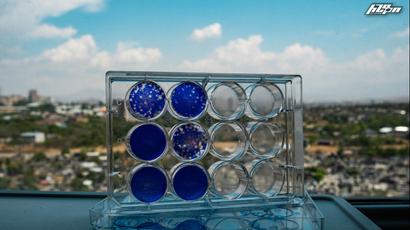!["My grandmother has cancer, we can't get her to Stepanakert, and we have run out of medicine" [Blockade from the inside]](https://cdn.infocom.am/enlarge?file=2023-08-03-32b100fc-3234-4640-b2bd-612cbae24c2c.jpg&type=jpeg&width=900&height=506)
"My grandmother has cancer, we can't get her to Stepanakert, and we have run out of medicine" [Blockade from the inside]
Blockade....day unknown. Following hours of patient waiting, the family of seven was handed a solitary loaf of bread yesterday.
"We didn’t have bread for breakfast. My elder brother stood in the queue, returning with just one loaf. What good does one loaf do for a family our size?" says Alyona Sayiyan, a 19-year-old resident of the Martakert City of Artsakh who lives with her two siblings and soldier parents.
Alyona describes the situation in Artsakh as dire. Bread alone proves insufficient; there is no fuel, fruits and vegetables.
"Due to the power outages, bakeries don’t have enough time to bake bread, hence lines get formed. Someone goes, waits patiently, and secures their ration. Others, less fortunate, repeat the cycle over and over until they obtain their share of bread a little bit later. However, today coupons were distributed, and people were reported that the store now receives bread for precisely the number of families who make purchases there," says Alyona with the hope that this arrangement can potentially reduce the need to endure hours of waiting in lines. Also, as she notes, a record will be made on the calendar indicating whether the family obtained bread on that specific day or not.

Alyona expresses her concern about the upcoming winter, foreseeing heightened challenges. "In the past, engines operated, communication flowed, and flour could be transported from the city. However, with winter approaching, the situation will likely become considerably more challenging."
Compared to Stepanakert, in Martakert the situation is not yet catastrophic in terms of food, because people have their yards, where they grow potatoes, beans, tomatoes, and greens.
Yet, unfortunately, medical supplies are running dangerously low. It seems that over the past few days, people have exhausted whatever supplies they had. On top of this, Alyona's grandmother is grappling with serious health issues.
"My grandmother is ill, she’s fighting cancer, and getting her to Stepanakert is proving extremely challenging. The medications she requires are exorbitantly expensive. At a certain period, the initial batch of medicines arrived through the Russian peacekeepers, but that supply has now depleted. We need to take her to the city for a CT scan to assess the disease's progression and determine the necessary treatment. However, the lack of fuel and transportation, coupled with the exhaustion of CT materials, is a major hindrance," Alyona discloses.
Alyona and her grandmother have deliberated on the option of seeking assistance from the ICRC to facilitate a transfer to Armenia. Yet, she's plagued by worries that if they do leave for Yerevan, they might not be allowed to return. Worse yet, there's the unsettling possibility of abduction by Azerbaijani forces, as they've recently apprehended two other citizens of Artsakh. "My grandmother's perspective is that it's preferable to remain with her family rather than embark on a journey with uncertainty about the ability to return. She lived through the 90s in Artsakh and experienced the wars of 2016 and 2020, alongside her grandfather, a veteran of the first war."
Access to hospitals has become increasingly challenging, leading some people to skip their prescribed treatments. This could potentially result in a rise in mortality rates over time. "Children are visibly losing weight due to vitamin deficiencies," Alyona points out. She recalls that one of the most heart-wrenching incidents during the blockade, one that shook the community to its core, was the tragic passing of two children from Martakert.
"The incident deeply affected most of us. I used to run into those children frequently while commuting to Stepanakert... We were deeply affected by it. We often worry that we might not be able to provide something for our child tomorrow, given how exceedingly tough the situation has become..."
Alyona recalls a period during the blockade when she managed to transport a few liters of milk to Stepanakert. The memory of seeing several elderly people at the store, unable to access dairy, left a lasting impact on her. She finds herself pondering why people haven't exerted more effort given the hardships they've endured. Alyona’s family owns an animal farm, hence during the blockade, she took the initiative to attend courses and has already commenced milk production, which she views as a silver lining amidst these challenging times.
Alyona made a significant decision during the blockade. She got engaged and together with her fiancé, they decided that their children should be born and live in Artsakh. Alyona emphasizes that they've gone through several wars, overcome countless obstacles, and now, they can't simply give up. While she had contemplated studying abroad at one point, the recent war underscored that Artsakh needs for people. Alyona is currently pursuing her studies at Shushi University of Technology, specializing in veterinary medicine. Although she originally aspired to become a food safety expert, there was no such faculty at the university. This circumstance did not depress her though. She is committed to excelling in her chosen field, recognizing the vital need for her expertise in Artsakh.

Since December 12, 2022, Azerbaijan has closed the only road connecting Artsakh to Armenia, the Lachin Corridor. On April 23, 2023, the Azerbaijani side closed the Hakari bridge on the Artsakh-Armenia border, which was in the area of responsibility of the Russian peacekeeping troops in the Lachin corridor, thus deepening the humanitarian crisis. An Azerbaijani checkpoint was installed on the Hakari bridge. Since June 15 of this year, Azerbaijan has banned all humanitarian transportation through the Lachin Corridor. After that, the ICRC was only able to transport patients to Armenia a few times.
On July 29, Azerbaijan kidnapped a 68-year-old citizen from the ICRC-mediated patient who was transferred to Armenia from the checkpoint near the Hakari bridge and took him to an unknown place. On August 1, Azerbaijani servicemen kidnapped another citizen who tried to go to Armenia on foot from the village of Hin Shen in Artsakh, his whereabouts are also unknown.
Artsakh has almost completely run out of essential products and medicine. Coupons intended for buying food months ago are now useless because the stores are empty. People go out only to get bread. Artsakh has run out of fuel, public transport does not work at all, and private cars rarely move. The gas supply is regularly interrupted, and electricity is cut off. In Artsakh, 120 thousand people, including 30 thousand children, are under total blockade.
Photos are from Alyona Sayiyan's archive
Hayarpi Baghdasaryan






!["I don't want my children to starve, to be subjected to genocide, I want to live in Artsakh, to build our Homeland" [Blockade from the inside]](https://cdn.infocom.am/enlarge?file=2023-08-10-4865f192-ab13-4e84-beab-6232fbca7831.jpg&type=jpeg&width=410&height=230)
!["It's truly unbearable to be captive on your own land; everyone wants to live, yet the possibility of life is uncertain" [Blockade From The Inside]](https://cdn.infocom.am/enlarge?file=2023-08-07-4da13b91-9ae8-4497-a322-a6173bea598d.jpg&type=jpeg&width=410&height=230)
comment.count (0)